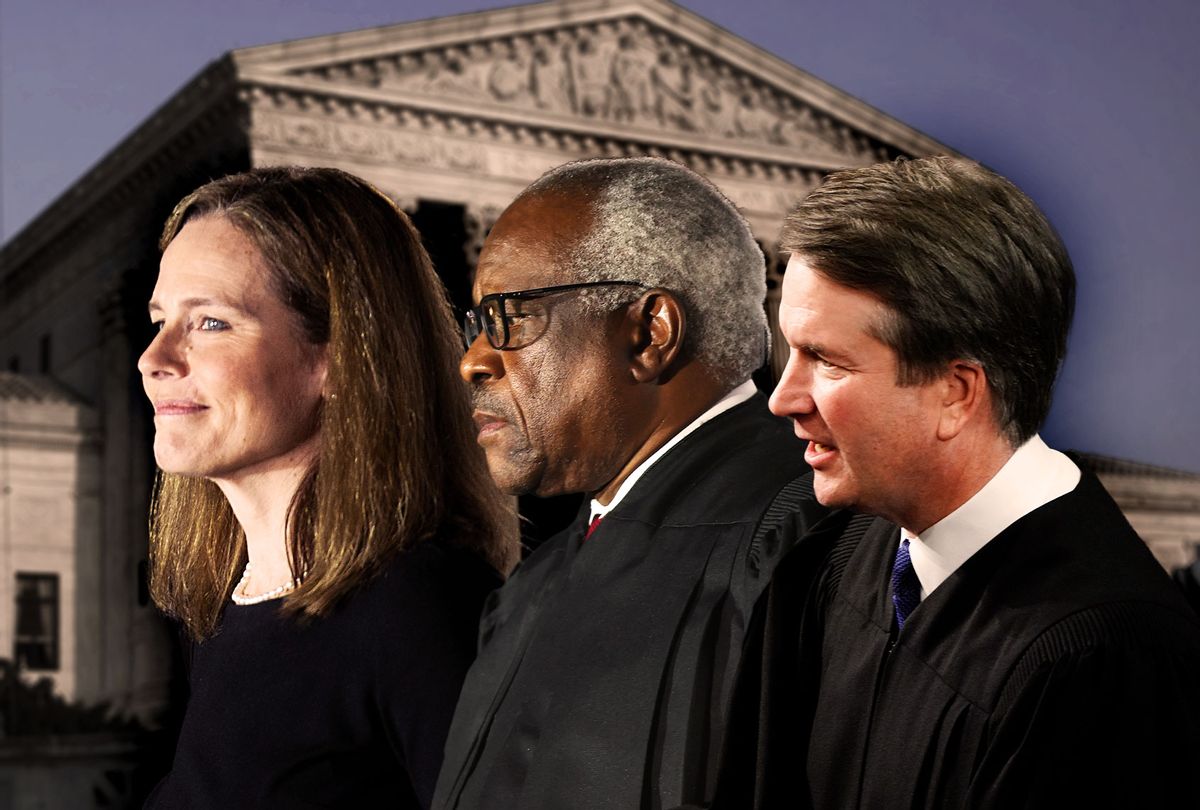"The government of the United States of America is not, in any sense, founded on the Christian Religion."
What forthright American declared such words? Bill Maher? Christopher Hitchens? Emma Goldman? No. They come from the Treaty of Tripoli, negotiated under George Washington, approved unanimously by the U.S. Senate and signed by President John Adams in 1797.
This early declaration — along with the First Amendment, which Thomas Jefferson solemnly revered "as building a wall of separation between church and state" — illustrates the unprecedented experiment our founders sought to test: a secular republic ruled by democratic laws, not sectarian faith; a nation whose government based its authority upon "we, the people" and not commandments handed down by distant gods. It is a brilliant endowment, given that in a pluralistic democracy such as ours, with people of many faiths and no faiths at all, we purposefully govern ourselves via secular legislation, not religious decrees.
But today, this bold pillar of American democracy is rotting fast. It is under attack by theocrats, especially those who sit on our Supreme Court. Their recent ruling making it nearly illegal for a woman to get an abortion in Texas is the latest terrifying case in point.
The problem is not religion, or even Catholicism. After all, many of our leaders, such as President Biden, Speaker Nancy Pelosi and Justice Sonia Sotomayor, are themselves Roman Catholics, and they all affirm reproductive choice as a constitutional right. In fact, 56% of Catholics in the United States support this right. Heck, Mexico — a nation of more than 130 million people, over 80% of them Catholic — just legalized abortion last week. And Mexico is only the latest in a long line of heavily Catholic countries to do so, including Argentina in 2020, Ireland in 2018 and Uruguay in 2012, along with Italy, Spain, Portugal, Austria, Rwanda and others before them.
So again, the problem isn't religion, per se. Rather, it is the kind of religion at play. The kind that a majority of our Supreme Court embraces: a crusading, activist, theocratic religious fundamentalism that prioritizes fealty to a particular conservative interpretation of God's supposed will over the democratically-sustained rights of American citizens. It's the lethal mix of religion and politics that our founders sought to restrain. It's Christian nationalism.
Justice Brett Kavanaugh, a staunch Catholic and a regular lector at his church, opposed the Affordable Care Act because it included a mandate on the provision of birth control. Justice Samuel Alito is a man of strong faith and darling of the Federalist Society, who has consistently ruled in favor of the religious — even supporting their desire to defy data-driven, medically-endorsed, life-saving mandates to thwart COVID-19. Justice Clarence Thomas always goes to Mass before doing his work at the Supreme Court and declared in a 2018 commencement speech at Christendom College, "I am decidedly and unapologetically Catholic."
Thomas might have been the most devout Catholic to ever sit on the bench — at least until Mitch McConnell and Donald Trump foisted Amy Coney Barrett on the country. Barrett has written that Catholic judges must not take any action that conflicts with the dogma of the church. Instead of upholding her secular oath, when such a conflict arises, Barrett has recommended that judges should "conform their own behavior to the [Catholic] Church's standard." When invited to repudiate this statement at her confirmation hearing in 2017, Barrett declined to do so.
Barrett also is (or at least was) also a member of People of Praise, a charismatic Catholic group which teaches that "a married woman is … under her husband's authority … the husband is 'head of the home' or head of the family; he is, in fact, her personal pastoral head. Whatever she does requires at least his tacit approval." Furthermore, People of Praise members take a loyalty oath, which says "We agree to obey the direction of the Holy Spirit manifested in and through these ministries in full harmony with the church." Barrett's opposition to abortion has been public for many years, and she has declared that her "legal career is but a means to an end … and that end is building the Kingdom of God." This wasn't an off-the-cuff remark; it was said at the Notre Dame Law School commencement in 2006. If there is any singular motto of an activist theocrat, surely that is it.
The separation between state and church our founders established guarantees true religious liberty because there is no freedom of religion without a government that is free from religion. And while many religious people — Catholics and others — find deep meaning, solace and inspiration in their faith by exercising that religious freedom in personal ways, they admirably do so without imposing the dictates of that faith onto others. Unfortunately, that is not the kind of faith driving those who now rule on the constitutionality of our laws — even laws that turn citizens into vigilantes, instituting mob rule over the womb.
Our judges certainly have a right to their personal religious faith. But when they impose that faith on all of us, the wall of separation between church and state is truly undermined. Texans' rights to bodily autonomy is but the most recent casualty. With this court, it won't be the last.

Shares